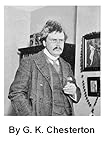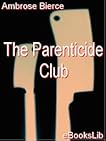 At the Back of the North Wind
At the Back of the North Wind by
George MacDonaldMy rating:
3 of 5 starsHow the
hell? I have never been so deeply, so brutally betrayed. "Almost thou persuadest me to nihilistic despair."
"All these were rosy visions of delight,
The loveliness and wisdom feigned of old,
But now we wake. The East is pale and cold;
No hope is in the dawn, and no delight."
Or how about:
"Roland is dead, Cuchulain's crest is low,
The battered war-rear wastes and turns to rust,
And Helen's eyes and Iseult's lips are dust
And dust the shoulders and the breasts of snow.
The faerie people from our woods are gone,
No Dryads have I found in all our trees,
No Triton blows his horn about our seas
And Arthur sleeps far hence in Avalon."
Or maybe even:
"It's vainly we are praying. We cannot, cannot check
The Power who slays and puts aside the beauty that has been.
It's truth they tell, Despoina, none hears the heart's complaining
For Nature will not pity, nor the red God lend an ear,
Yet I too have been mad in the hour of bitter paining
And lifted up my voice to God, thinking that he could hear
The curse wherewith I cursed Him because the Good was dead.
But lo! I am grown wiser, knowing that our own hearts
Have made a phantom called the Good, while a few years have sped
Over a little planet. And what should the great Lord know of it
Who tosses the dust of chaos and gives the suns their parts?
Hither and thither he moves them; for an hour we see the show of it:
Only a little hour, and the life of the race is done.
And here he builds a nebula, and there he slays a sun
And works his own fierce pleasure. All things he shall fulfill,
And O, my poor Despoina, do you think he ever hears
The wail of hearts he has broken, the sound of human ill?
He cares not for our virtues, our little hopes and fears,
And how could it all go on, love, if he knew of laughter and tears?"
Honestly? Give me thirty-seven chapters of the magnificent, lovely, wholly beautiful deep comedy, comedy in the ancient sense, and then finish it off with the most desolate tragedy that could have taken place? How is this a children's book? Is
Notes From the Underground a children's book? "Oh, as soon as you finish watching Disney's
Sleeping Beauty we'll go ahead and start Zeffirelli's
Romeo and Juliet? But this was worse: we've given
Sleeping Beauty, but when the Prince kisses her, her lips are poisoned, so he dies, and she, waking and seeing him dead, kills herself. At the last moment, our magnificent dream is turned to a nightmare. Aslan returns, and He Is Tash. As Jewel (or was it Tirian? I think it was Jewel) says, it is as if you go to take a drink of water, and it is dry water. At least in
The Last Battle we are given page after page of tremendous, heart-breaking glory which leaves us unable to mourn; in this we are left dumb and devastated next to the family members waiting on the platform (which Lewis doesn't even mention).
Perhaps I would not be so angry had Diamond not become so dear to me. Had I loved him less, I could far more easily abide his creator killing him. But the final injustice that so infuriated me, that of Jim and Nanny so fully rejecting Diamond as to condescendingly pity him, is never resolved, only has quick-crete poured on it, and then to fix it Diamond dies alone and unjustified, more horribly and unforgivably misunderstood by those whom he so deeply loves as he ever had been. Why could he not have been accepted? Why must there be this heart-breaking isolation? Why can there not be a final union, where Diamond is no longer the outsider but a true member, accepted as he is for who he is?
In my eyes, the only justification for this ending is if MacDonald wrote the book as a tribute to some child, quite possibly mentally damaged, that he deeply loved until their early death. If so, the tremendous tragedy is justifiable, although to put it in a children's book? I understand that he was attempting to remove the fear and horror of death with his last sentence, but he utterly failed, and he shouldn't have attempted it. Death is a horrible, unfair desolation. It
cannot be made right. It cannot be made right with a lifetime, it cannot be so much as slightly mitigated with an offhand phrase.
Yet, this gives not a moment to the simple fact that this was one of the loveliest books I have ever read. The final disappointment was so tremendous only because it was set up for so great a glory. It was reminiscent (yes, only to my twisted, or should we call it unique? mind) of Pan's Labyrinth in how close it came to offering a glorious,
true resolution--true the way that the dawn is true, the way a salt-wind rolls up a river and hits your face like a passing semi is true, that a niece upon each shoulder is true, that an arbor draped in clematis and rose is true--and how impotently I raged at the lie that was substituted in its place. It could have been the greatest ending I had read since Tolkien, Lewis, or Dunnett, but it ended up being the worst since Bierce.
View all my reviews
 Catching Fire by Suzanne Collins
Catching Fire by Suzanne Collins




















